TIME
This article is re-posted with permission. We thank Gabrielle Elise Jimenez, hospice nurse, end-of-life doula, and conscious dying educator, for sharing her experiences at thehospiceheart.net blog.
____________________________
 How much time do we have? Where did the time go? I wish we could go back in time. Remember that time? Time is on my side… time is not on my side. One more time… I wish I had one more time. Time waits for no one. Time flies. Wasted time. Time well spent. Time is money. Precious time. The trouble is, that we think we have time.
How much time do we have? Where did the time go? I wish we could go back in time. Remember that time? Time is on my side… time is not on my side. One more time… I wish I had one more time. Time waits for no one. Time flies. Wasted time. Time well spent. Time is money. Precious time. The trouble is, that we think we have time.
“All we have to decide, is what to do with the time that is given us.” ~ J.R.R. Tolkien
Have you ever sat and thought about all the things we say or have heard, relative to the time we have, the time we’ve lost, how we have spent our time and how much more is left? We do not realize how much time has been wasted, until our time left is limited. And those who are sitting at the bedside of someone whose time is short, is reminded of this in a very big way.
I recently spent some time with a widow who has been trying to clean out her husband’s belongings. Her husband had many interests and left behind a lot of things for her to go through, which in quite honesty has taken its toll. Following in his parent’s footsteps, he worked on clocks and watches and has an entire room filled with parts and tools. This was more of a hobby for him, but one he enjoyed and spent a lot of time on. The room itself is very cool, I have enjoyed my time in there as well.
Our conversation about him and the hundreds of pieces of clock supplies got us talking about time; how we spend it, how we manage it, how quickly is passes, and how precious it is. As I started to write this blog, which was inspired by our conversation, I asked her to put together some of the clock/watch tools and supplies and take a photo for me, which she graciously said she would do. This project became quite therapeutic for her. She said, “it turned my thoughts from feeling like he left me with all this stuff to deal with, to he left me with all this stuff to play with, and I am blessed with the time to explore and heal.”
Time can be our friend when we have the luxury of time. We are able to do things with less rush or urgency and put it off for later, not feeling the need to push to finish the things we have counted on having time for. And then something unexpected happens and time has been taken from us… all that time we counted on and took for granted is now gone. We do not get that back, and I know many of you can appreciate this.
What I hear often is, “I thought we would have more time,” in which I think to myself… don’t we all? In those last few hours, as I witness people at the bedside saying their goodbyes, I watch as they quickly say the years-worth of things they’ve held on to, always thinking they would have time to say them later. I imagine them all thinking, “how did it get to be “too late” so soon?”
There is a quote by Lao Tzu, “To say, ‘I don’t have time’, is like saying, ‘I don’t want to.” Think about that for a moment, allow that to really sink in. If there is someone out there, right now that is wishing to hear things from you, and you do have the chance and you do have the time to say them… imagine the comfort you would bring to their life, removing that feeling of, “they just don’t want to.”
If I could go back in time there are so many people that I wish I could say things to, but that isn’t realistic, and I am not going to beat myself up about that. But I can change things moving forward, and so can you. Say the things now, while you truly do have time. Assume you only have a window of time… take advantage of that window.

 Bravery and honor are words reserved for the select few who have risked their lives in service of our country. For United States Air Force and Navy veteran Donald McClarren of Boiling Springs these are the words he lived by during his time as a Prisoner of War in North Korea. A humble and soft-spoken man, Donald may dismiss the word hero to describe him, but he is all of this and more to those who know and served with him.
Bravery and honor are words reserved for the select few who have risked their lives in service of our country. For United States Air Force and Navy veteran Donald McClarren of Boiling Springs these are the words he lived by during his time as a Prisoner of War in North Korea. A humble and soft-spoken man, Donald may dismiss the word hero to describe him, but he is all of this and more to those who know and served with him.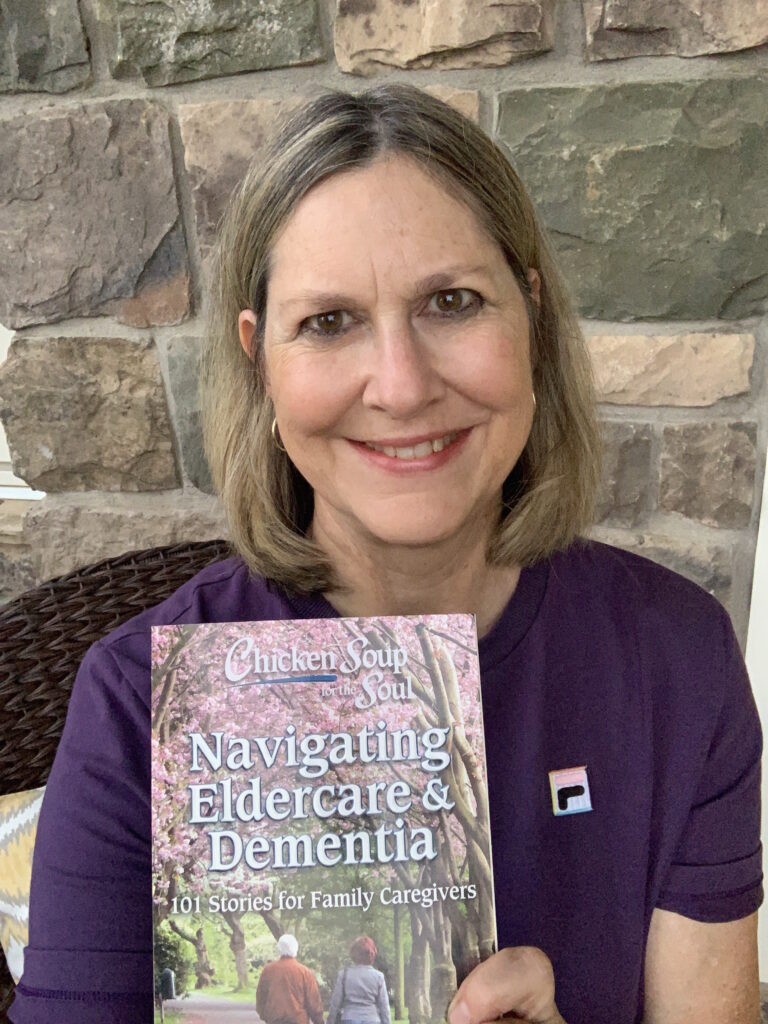 The words were in her heart and head. They were formed over a 24-month journey of caring for her father before his death and grieving his loss after his passing. Pattie Craumer of Mechanicsburg gave her words life in a short story published in June in Chicken Soup for the Soul: Navigating Eldercare & Dementia: 101 Stories for Family Caregivers. Her piece, “Behind the Things” tells the story of parting with material possessions and the memories they hold after the death of her father.
The words were in her heart and head. They were formed over a 24-month journey of caring for her father before his death and grieving his loss after his passing. Pattie Craumer of Mechanicsburg gave her words life in a short story published in June in Chicken Soup for the Soul: Navigating Eldercare & Dementia: 101 Stories for Family Caregivers. Her piece, “Behind the Things” tells the story of parting with material possessions and the memories they hold after the death of her father.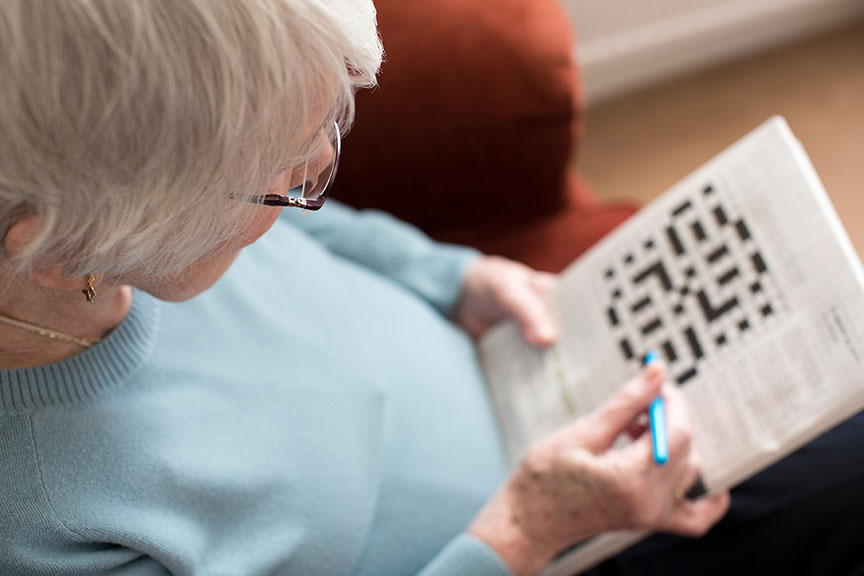 Most polls consistently show that people fear losing their memory and mind more than anything else, even death. Our brains are the very essence of our very being. Today, 5.3 million people are living with Alzheimer’s disease, and we are predicted to reach 15 million by 2050. Alzheimer’s disease currently has no cure and medications offer only a temporary solution for some of the symptoms that are associated with the disease. So, what are we to do? Plenty!
Most polls consistently show that people fear losing their memory and mind more than anything else, even death. Our brains are the very essence of our very being. Today, 5.3 million people are living with Alzheimer’s disease, and we are predicted to reach 15 million by 2050. Alzheimer’s disease currently has no cure and medications offer only a temporary solution for some of the symptoms that are associated with the disease. So, what are we to do? Plenty!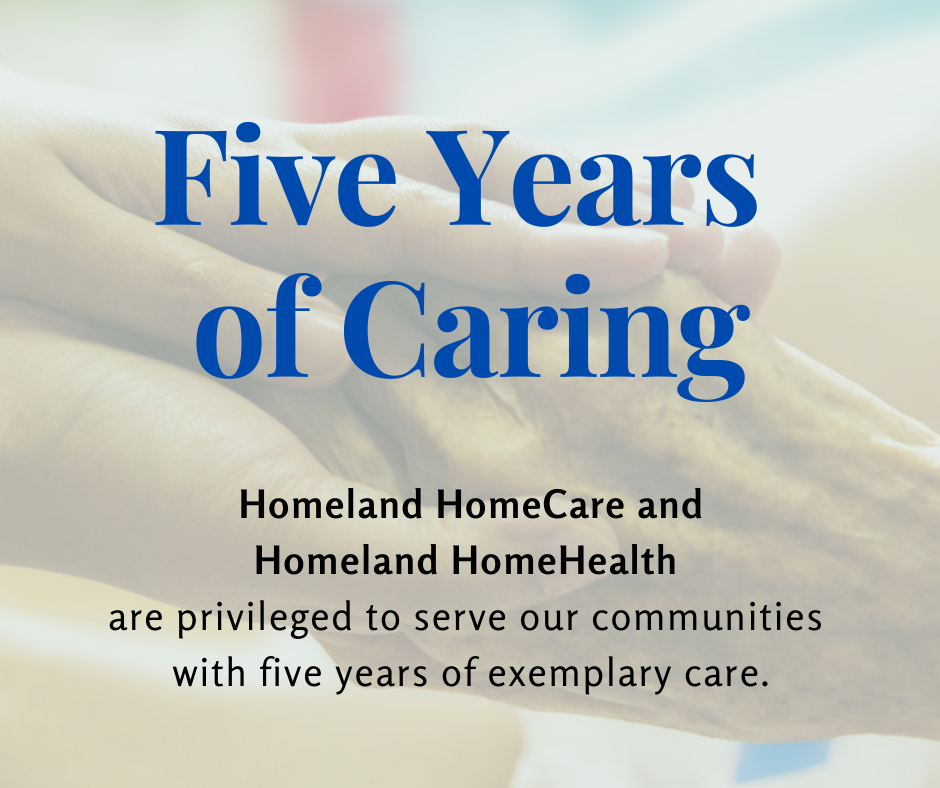 Since 1867, Homeland Center has been committed to meeting the ever-changing needs of the community. In keeping with this tradition, Homeland HomeHealth and Homeland HomeCare were established five years ago to provide a continuum of services for patients and their families using a team-approach, which places patients at the center of care. Since the launch of these services, thousands of patients have received exemplary care by a team who treats them like family.
Since 1867, Homeland Center has been committed to meeting the ever-changing needs of the community. In keeping with this tradition, Homeland HomeHealth and Homeland HomeCare were established five years ago to provide a continuum of services for patients and their families using a team-approach, which places patients at the center of care. Since the launch of these services, thousands of patients have received exemplary care by a team who treats them like family.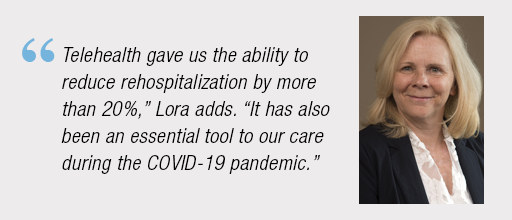
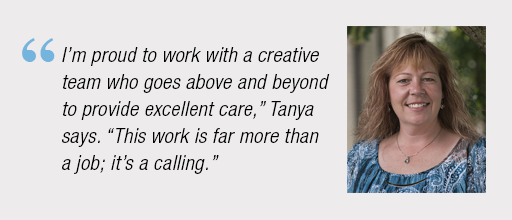
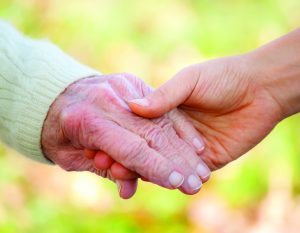 As you or a loved one are nearing the end-of-life, physical symptom and pain relief is essential but it’s only a part of Homeland Hospice’s overall healthcare approach. Helping patients and their families manage the emotional and mental aspect of this poignant journey, through spiritual counseling, is part of Homeland’s holistic approach to healthcare.
As you or a loved one are nearing the end-of-life, physical symptom and pain relief is essential but it’s only a part of Homeland Hospice’s overall healthcare approach. Helping patients and their families manage the emotional and mental aspect of this poignant journey, through spiritual counseling, is part of Homeland’s holistic approach to healthcare.
